The precarious business of living off modding
We speak to modders about the challenges of earning an income from their work.
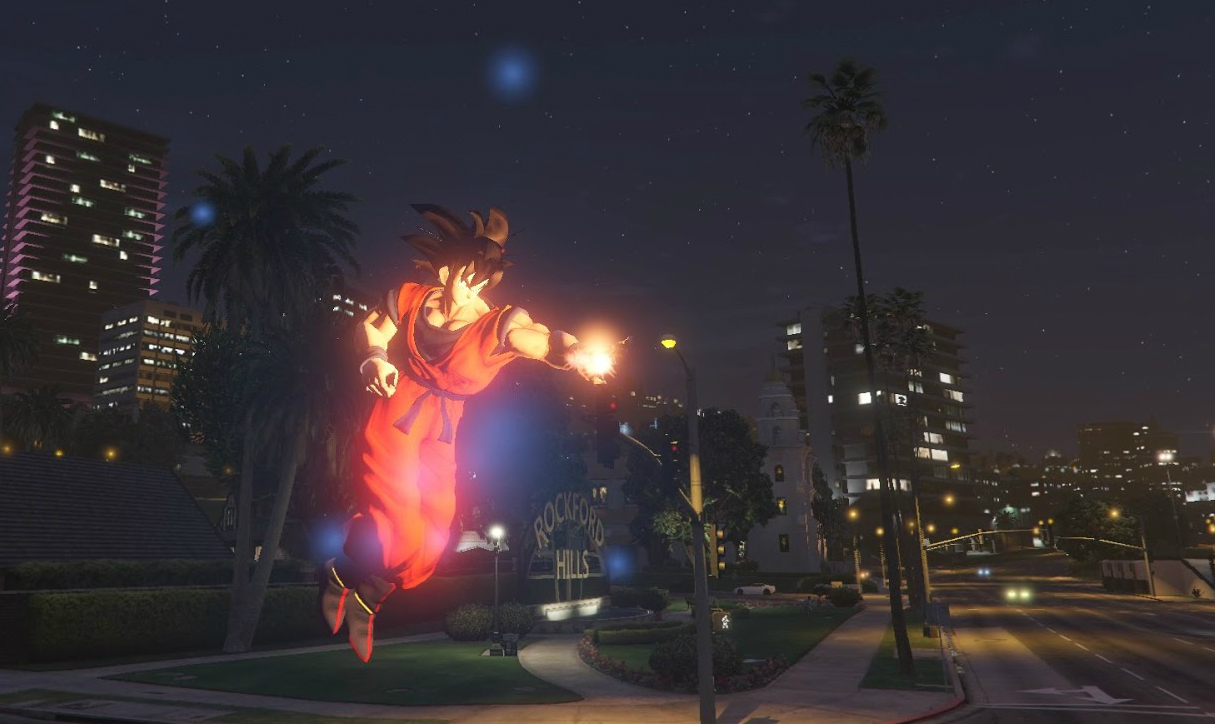
For a lot of PC gaming’s history, modders have played an instrumental role, collectively building the foundations for many of its cathedrals, such as Counter-Strike, PUBG and League of Legends, as well as the details, from hats to resolution fixes. Modding was the throbbing engine that gave PC gaming its vibrant and dynamic soul.
But something’s changed. Modding isn’t the only way hobbyist game makers can express their ideas any more. Cheap and free game engines make it much more straightforward to build games from scratch, and the likes of itch.io and Steam give new developers a place to sell them. What’s more, big modern games are so much more complex and harder to mod than ever before, and they’re usually given constant updates, including new features which would once have been the province of mods.
And yet at the same time, today modders have greater support than ever. With the rise of Patreon and programmes that give official commercial support has come the opportunity to legitimately make a living through modding. But it remains a precarious business. We talked to four modders who are making money from their craft.
Julio NIB: Making a living in Grand Theft Auto
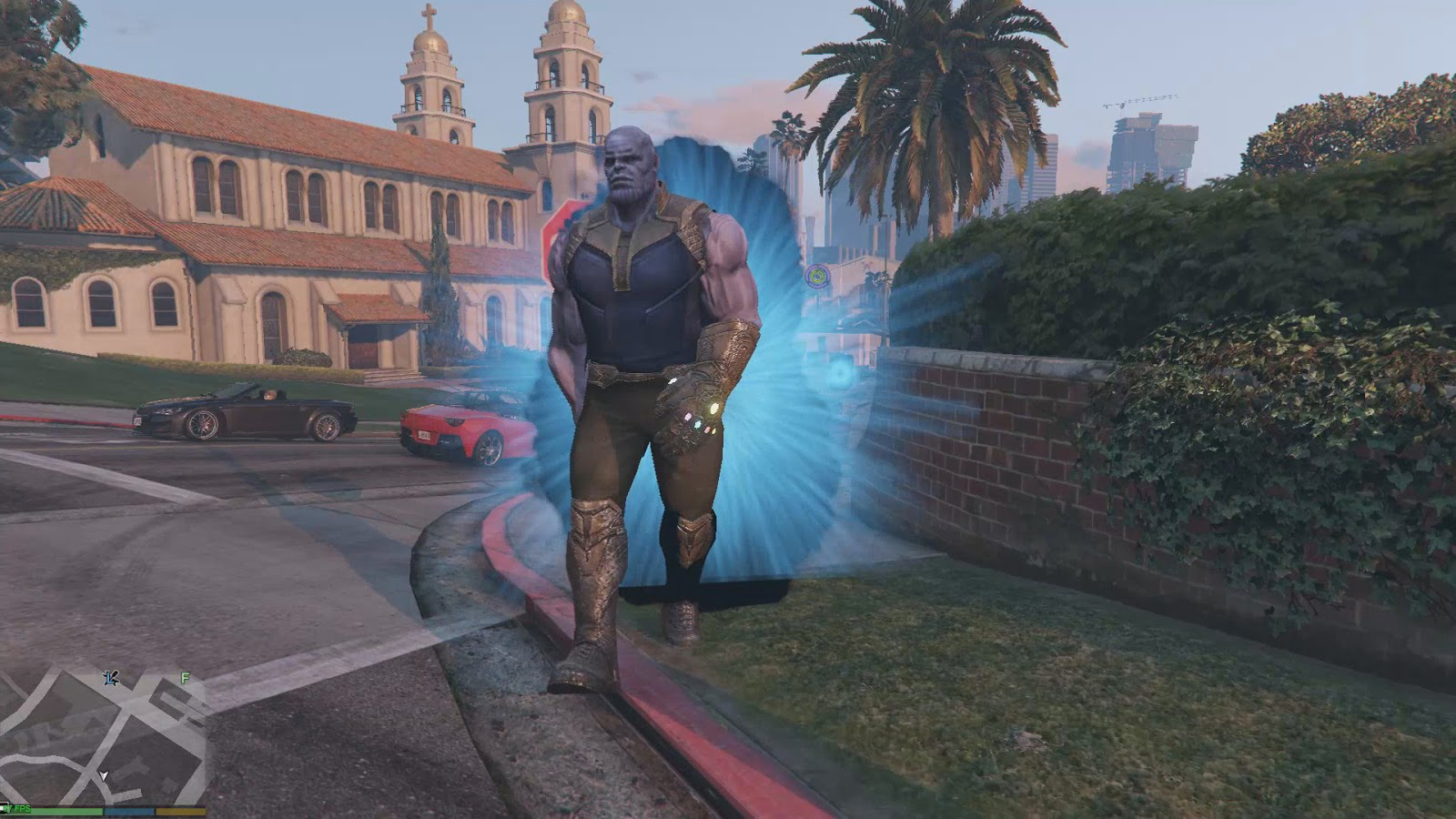
If you want to play GTA 5 as the Hulk, leaping to a flying helicopter and smashing it to the ground before grabbing a lamppost to wield as a baseball bat, Julio NIB is your modder. Or perhaps you want to play as Thanos, throwing meteors, creating black holes, and able to instantly kill half the local population. Julio NIB, real name Julio Schwab, makes scripts that open up new behaviours and add new characters to Rockstar’s urban playground, making it react to fan desires and hot memes.
He’s added Dragon Ball’s Kamehameha and Genki Dama attacks, controllable drones from Tom Cruise sci-fi vehicle Oblivion, Crysis suit powers, complete with the same control interface, and Ghost Rider. His body of mods is eclectic, and it’s his job. For eight to 10 hours, six or seven days a week, he works on his mods from his home in Maringá in southern Brazil, taking 3D models made by other modders like Quechus13, Rarefacer, MadBreaker, and breathing life into them.
And it comprises his entire income. Schwab runs his modding through Patreon, where he has 3,079 patrons. $2 buys you the access you need to be able to download his released mods, and $10 will give access to in-development ones.
He won’t say exactly how much he makes each month, but you can make a lowball guess if you assume each patron pays the minimum $2. That’s a tidy income, especially for someone living in Maringá, where living costs are two thirds cheaper than New York City. “If I earn US$1000 a month, I earn more than the Brazilian base salary.”
Keep up to date with the most important stories and the best deals, as picked by the PC Gamer team.
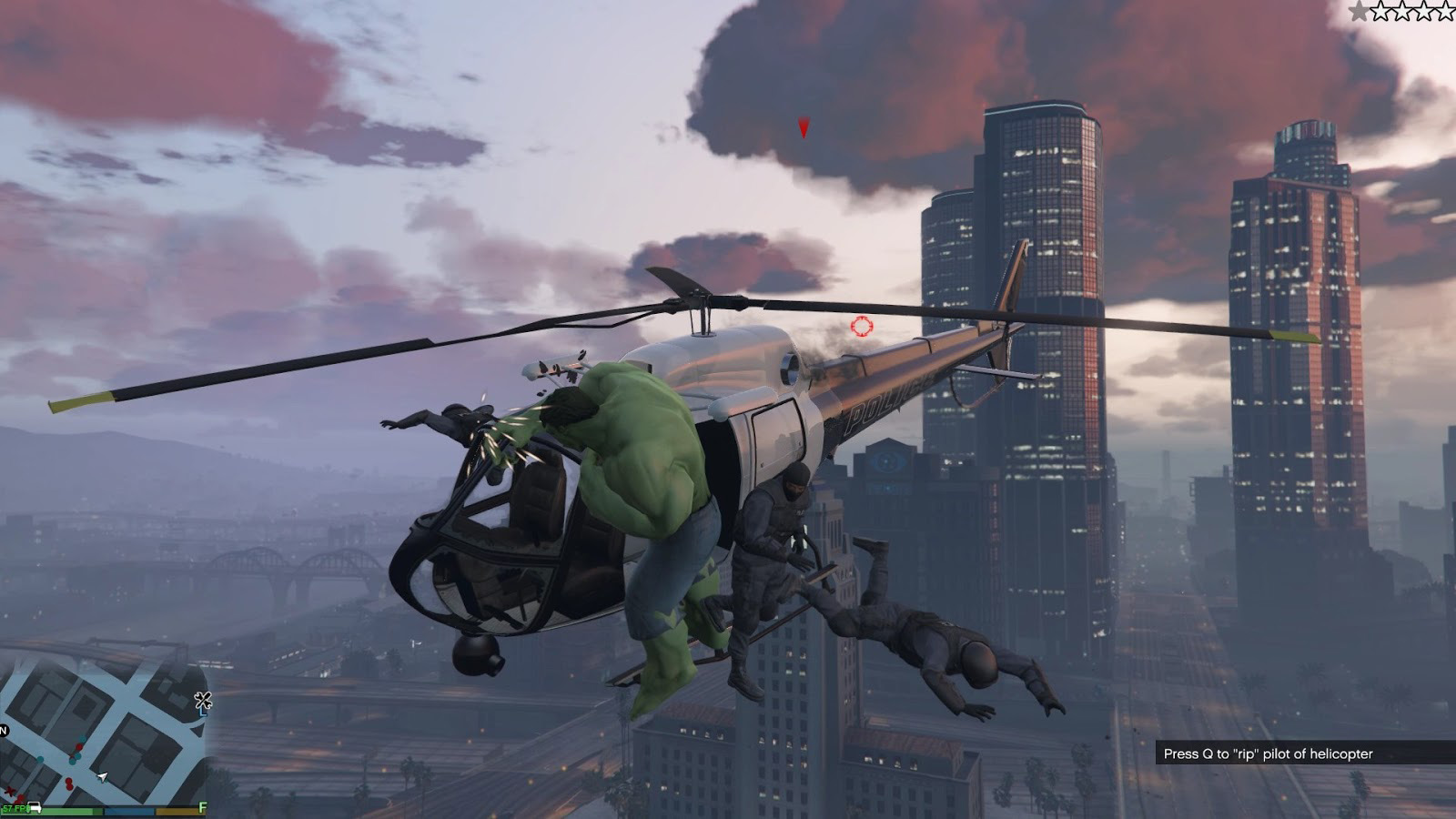
He’s not entirely happy that they’re locked behind Patreon’s VIP system, but without it he wouldn’t have a business. “Unfortunately this is how things work,” he says. “Because the mods were completely free before, I was earning mainly with ads in my blog, but lot of users use AdBlocker and lot of people re-upload my work.”
And using Patreon hasn’t gone down well with all his audience. “Even more after setting VIP content.” But he doesn’t care too much. “I don't have time to care.” He’s trying to build up his output from one mod per month to two in order to gain more patrons and live up to their expectations. It’s a cadence that’s putting great pressure on him, but with his income has come the chance to invest in better hardware and reason to work out better production methods.
And what about Rockstar? And Marvel, and all the other holders of the IP Schwab plays with? The VIP system puts him in danger of being accused of selling mods, which would lose any legal protections they might have from fair use. But he’s not worried, figuring his work is only encouraging GTA 5’s sales.
“Some people say they’re only still playing GTA 5 because of my mods, others say they bought the game just to use my mods. Suing me because I’m creating my own scripts without stealing anything from the game, only bringing more into the game and more interest from users, wouldn't be an intelligent idea. But if they do, I will still mod while I can.”
ARK Star: Going legit in StarCraft 2
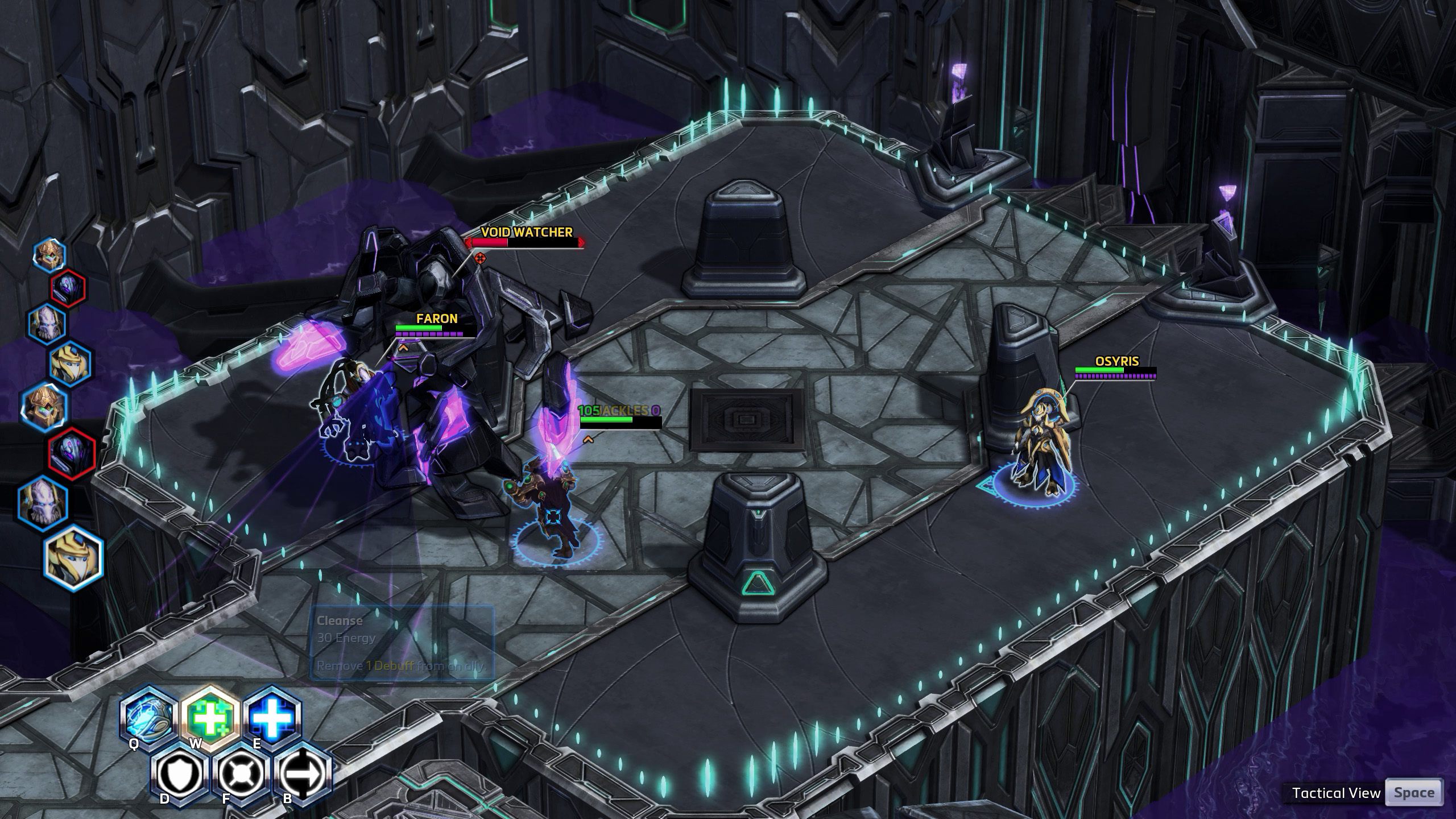
In April, Blizzard launched StarCraft 2’s Premium Arcade, a series of custom maps sold through Blizzard’s own storefront and from inside the game. Its first two games both cost $5: Direct Strike, an established two-player custom game, and ARK Star, which is quite a departure from the essentials of StarCraft. It’s a full singleplayer RPG featuring turn-based tactical combat. Polished to a sheen and boasting a full storyline, classes to upgrade and gear to equip, it feels like an entirely separate commercial game.
ARK Star is the culmination of an ambition that got its creator, Daniel ‘Pirate’ Altman, into serious modding. Way back in 2009 he caught a discussion during a panel at Blizzcon about the idea of a premium mod marketplace, and it stuck with him. “It planted the idea of how cool it would be to earn spare cash making small games,” he says.
So, when he graduated from his degree in forensics, rather than enter the police force, he went into modding, working as a bartender, on and off, to keep himself solvent. He soon carved out a name for singleplayer custom games, first with Facility 17. “It ended up being one of the first really popular singleplayer arcade games, back in the day—for about a week. All in the game racked up several hundred thousands of hours played.”
The first money he earned through StarCraft 2 modding was in 2012, when he answered an ad to make a custom map that’d serve as a wedding proposal. “It was actually kind of cute. The game started in this roller derby arena made out of SCII props, representing where they had their first date, and then it gets attacked by Zerg, and there’s a chase sequence, and an Ultralisk drops a ring. I remember him being very happy with the end product, but you know, I’m not sure I ever heard how the proposal went over.”
More contracts came in from gamers who wanted their own modes and game studios who wanted to rapidly prototype ideas, as well as projects for Blizzard. “These kinds of jobs tend to pay a fair rate, but they tend to come few and far between.” The most recent contract Altman did was to make Axiom Mod for TotalBiscuit.
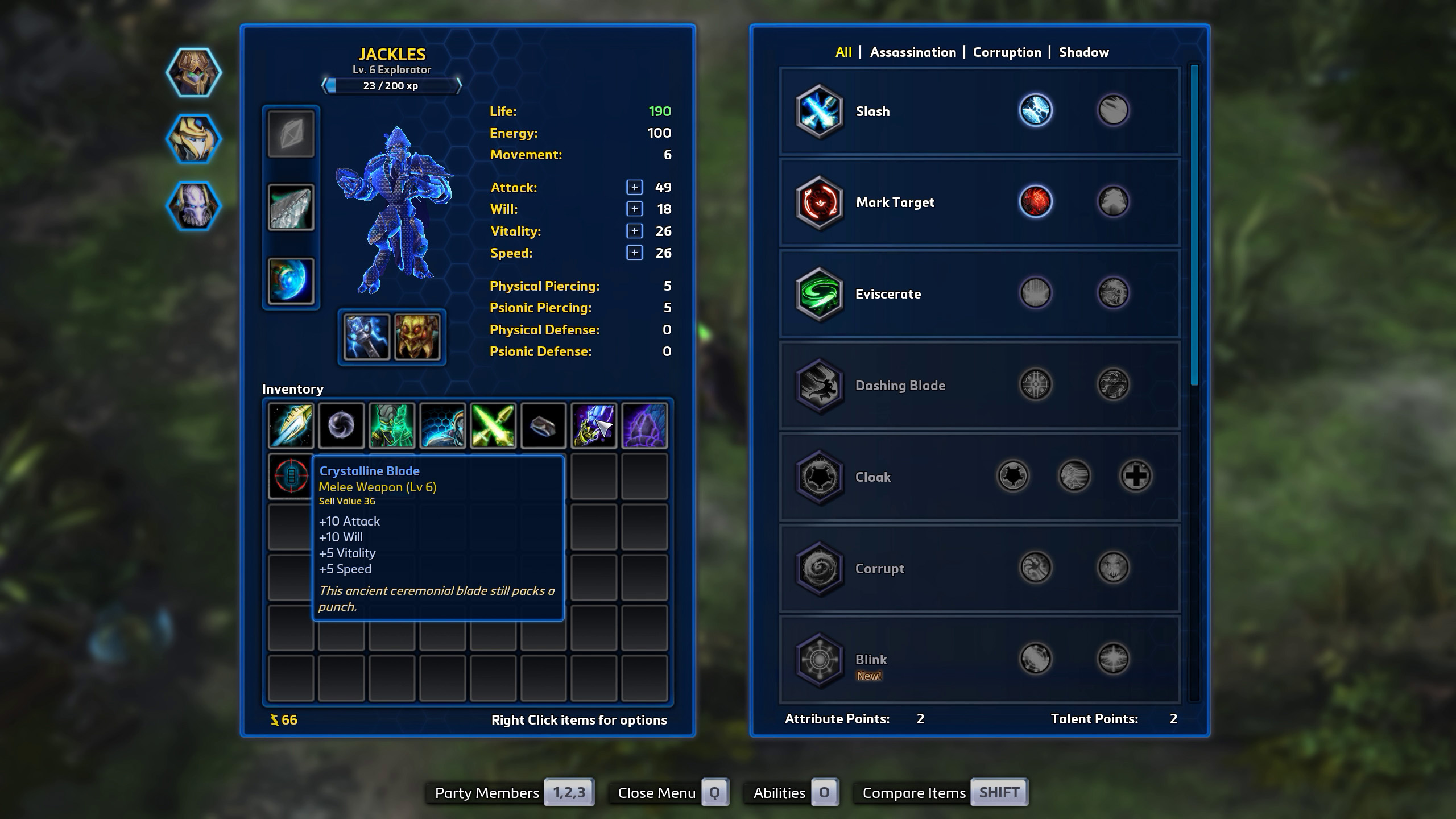
In 2015 Altman won Blizzard’s Rock the Cabinet mod contest with DWARVEN COMBAT, earning $10,000. Its success set his sights more firmly on making his own stuff, compounded when Blizzard got in touch to see if he’d be interested in making one of the first games for Premium Arcade. And so he kicked off ARK Star, going as far as hiring a composer, 2D artist and level artist.
Over its development, modding became his life. He quit his bartending job and worked 50-60 hours a week for the final year. “I felt like it was my big chance to prove myself as a game designer, and could either use the opportunity to either start a small series of games, or finally break into the games industry. If ARK Star really takes off I’d love to rent an office in a coworking space and try to maintain a bit of a better work-life balance.“
But, so far, ARK Star hasn’t really taken off in that way, and Altman’s contract work earned better. ”StarCraft 2 modding as a source of income has not been financially viable for me,” he says. “My attempts at marketing the game so far have been pretty unsuccessful. While I approached development like making a standalone indie game, I don’t think the community sees it like this. Lack of visibility is compounded by having to download a 28GB client to play the game, leaving ARK Star in a pretty tough spot.”
Roshpit Champions: Jungling in Dota 2
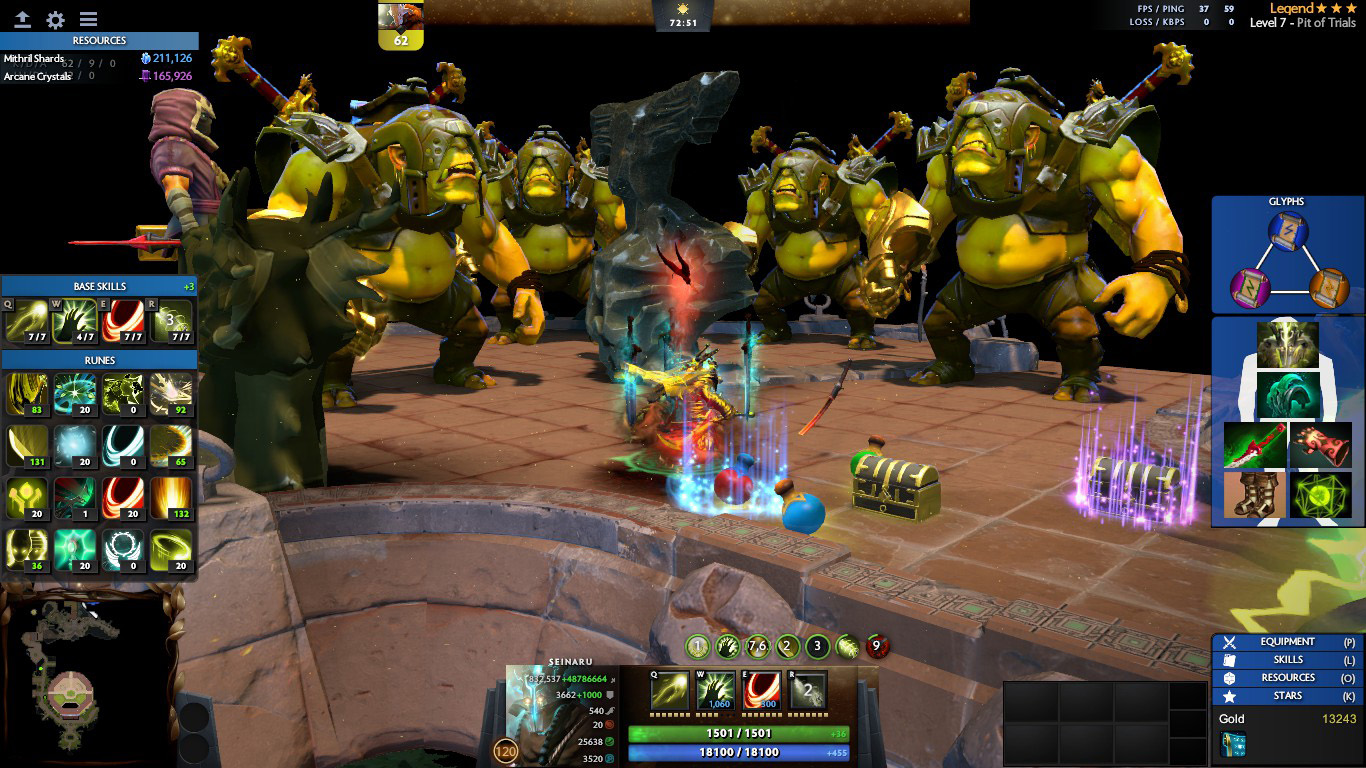
One of the biggest and most ambitious custom games for Dota 2 is Roshpit Champions, a multiplayer action RPG that features Dota 2’s heroes raiding dungeons and claiming hot loot drops. It’s a big game, and made by one person, a Toronto-based programmer called Ryan Racioppo.
It’s a huge project, quite enough to keep him busy working on it full-time for two years. Roshpit Champions is in Dota 2’s Custom Game Pass programme, through which players can pay $1 a month to unlock stash and save slots and raise item drop chances by 50%. But that’s not its bottom line.
Most income comes from roshpit.ca, a website which features an auction house which allows players to buy and sell virtual Roshpit items and gives the opportunity to buy a Web Premium pass, which gives additional site features and makes members’ in-game icons glow to show they’re supporting the game. That’s the only connection between roshpit.ca and the game itself. “Customers are totally okay with it, they appreciate the value it gives and that it supports the game,” says Racioppo.
Things started out well. “The first month, wow, it was insane. I was thinking I could do it full-time. There was a ton of attention and so many players were buying passes. Then the second month was all right, and then it dropped off and it hit a trough. Then I started steadily increasing it.”
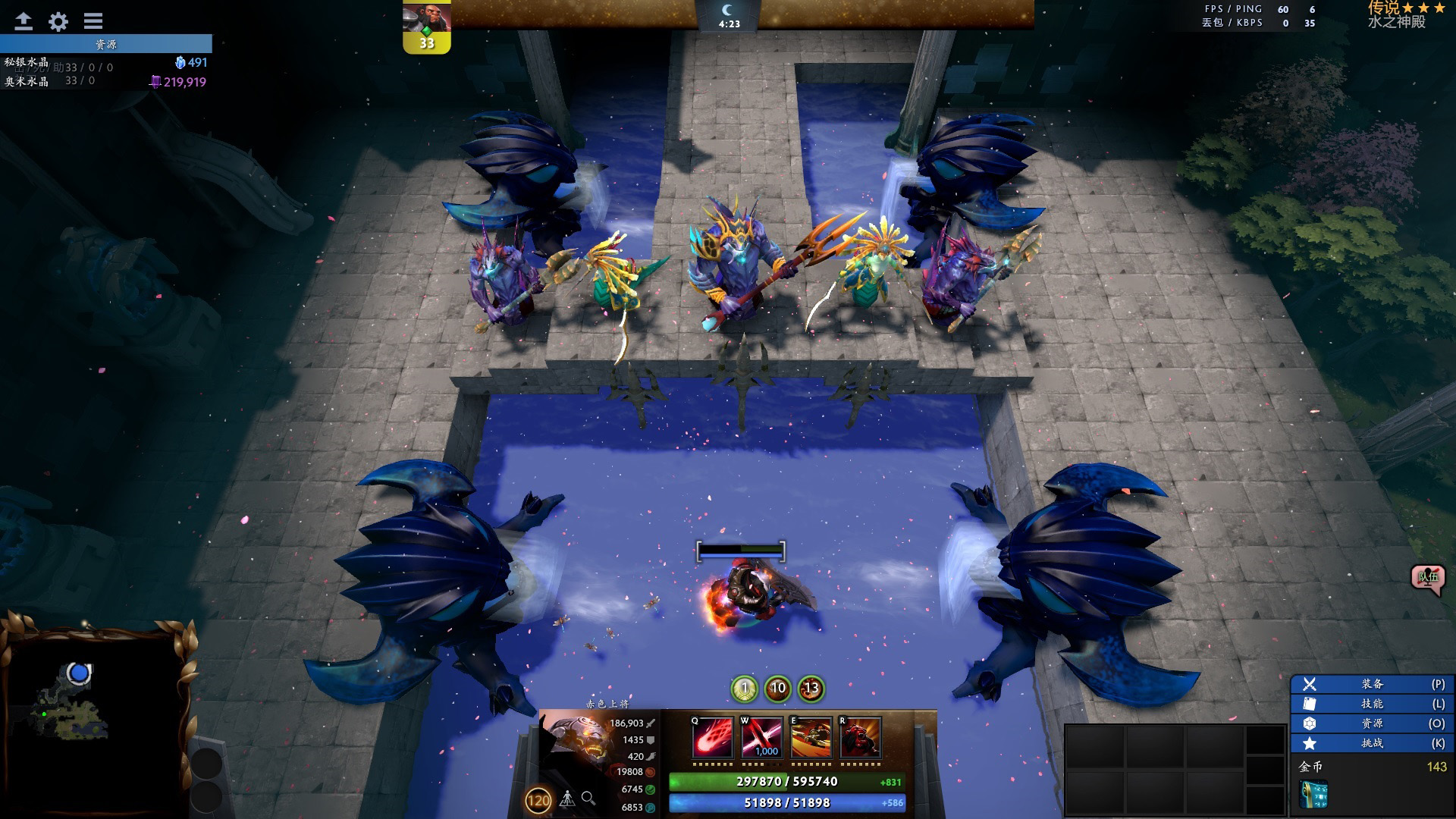
But when Racioppo started streaming for donations to buy food, that was the point he realised that things weren’t really working out. He got a job as a programmer at a local eSports company, and immediately saw players noticing that content wasn’t being added any more. It was frustrating, knowing he couldn’t satisfy the demand for the game he’d made.
So he arranged a part-time contract with his remarkably understanding boss (who also tolerates him being active on the game’s Discord all day), and since April he’s been working Monday to Wednesdays at his job, and then the rest of the time on Roshpit Champions. “I just released a big content patch, and revenue went up immediately, so I know how to keep people engaged. It’s just that I’m the only developer.”
Racioppo first got into modding Warcraft 3 during his teens, but he never saw it as a vocation. He went to university to study accounting, and found it so boring that he decided to learn how to program. And what better way to explore his new skillset than by realising a dream he had for a Diablo-like set in Dota 2, his favourite game?
But he’s at the mercy of Dota 2’s popularity. While we talk, he checks its player count, noting that it’s down 12% since the same time last year. “If I was going to rely on this as my only income, you never know, Valve could just shut down modding, maybe, if it’s stopping them developing the engine or something. I’m completely dependent on their whims.” When he was full-time on Roshpit Champions, he simply figured that if the game was good, Valve would have no reason to pull the plug.
For now, then, Roshpit Champions is a fulfilling and large-scale side project. “I see the money as more of a justification. I would love to be full-time, but obviously there’s not enough money in it.” But he’s still trying to grow it. “We’ll see where it’s at in the next couple of years.”
Team Radious: Openness in Total War
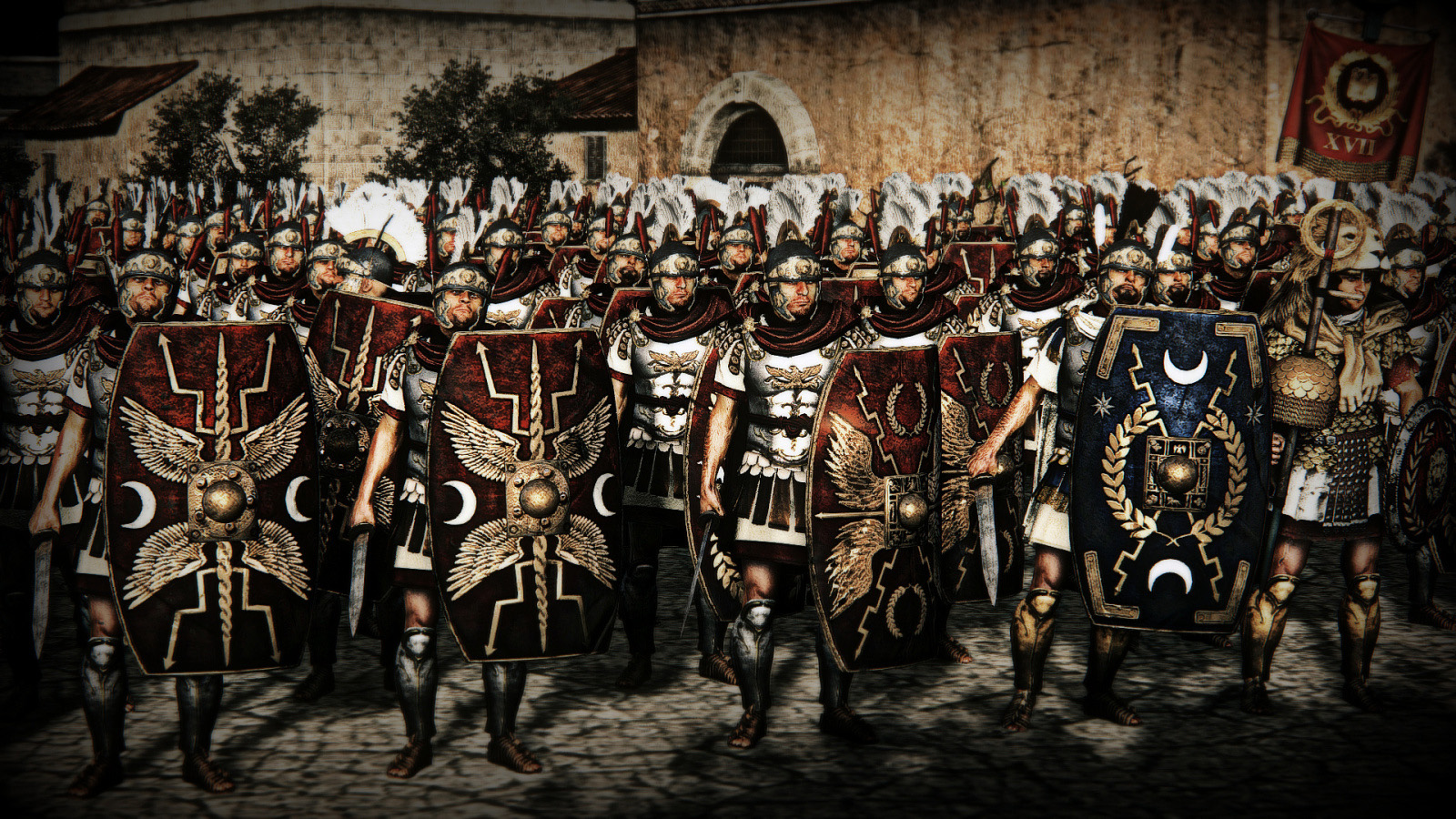
Team Radious is a community of modders for the Total War series, creating translation patches, custom units, tweaked effects and complete overhauls for Rome 2, Attila, Thrones of Britannia and the Warhammer games. Like all modding, it started as a hobby 12 years ago for its lead, Jan, who by day works at the Czech Social Security Administration. But as Total War has become more complex, so too has the job of modding it.
”Overhauls are massive modifications which require hundreds or thousands of hours, and more for updates and support once they are released,” he says. That means bringing in outside expertise, hence the whole ‘Team’ Radious thing. “Video makers, picture makers, unit cards, UI modding, graphics and textures, database and scripting. I can maybe handle a lot, but definitely can’t handle all.”
With the work steadily rising in scope, in early 2017 he turned to Patreon, where 286 patrons now give the team $1,470 a month. Unlike most Patreon modders, like Julio NIB, Team Radious doesn’t restrict mod access to patrons. “Our mods and everything we do always been, is and always will be entirely free for everyone,” Jan says. “We are not selling anything. Patreon is just a platform where people if they wish can support our work.”
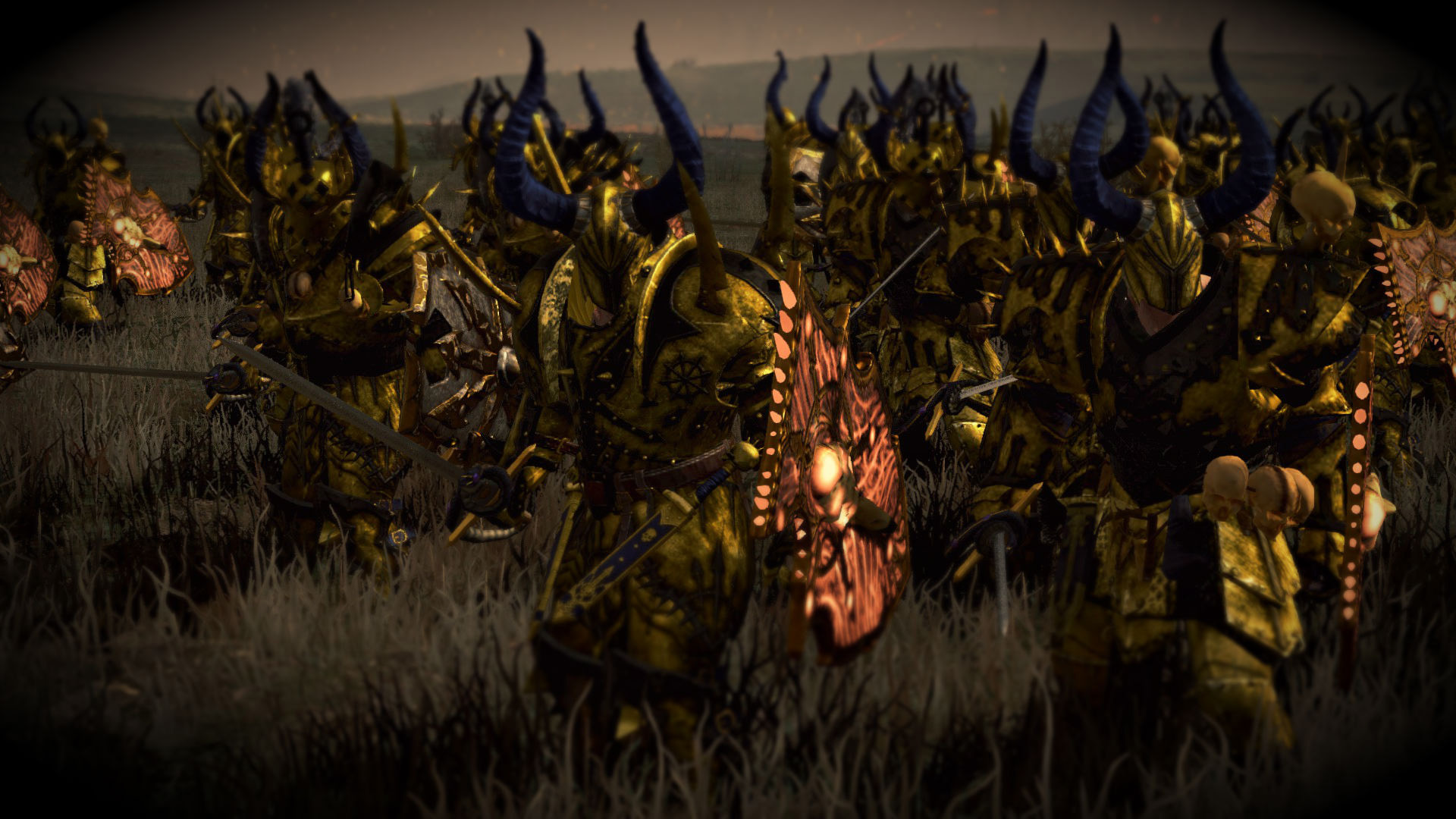
Of course, Patreon has introduced overhead of its own. It needed promoting, so Team Radious opened up social media accounts, which all need to be updated and maintained, and its tiers of support, which range from $1 to $70, open up insights into the team’s roadmaps and give chances to vote on future decisions. Jan estimates he now spends 40% of his time managing community matters, which also include organising events and quizzes, game nights and community votes, taking in feedback and giving support. “All this of course takes additional amount of time which we already do not have to waste.”
One of the ways he manages community expectations is being transparent and open. “So everyone can see how much we get, what are our goals are.” And that extends to the team itself, with the Patreon money—as well as other donations that come in via PayPal—divided up according to who did what. “It’s clearly visible for every member so there are no troubles or hidden things.”
Still, despite these pressures, Jan remains as engaged as ever, working to raise the quality of Team Radious’ output higher while avoiding letting it affect the rest of his life. “Even after 12 years there are always new things to learn and to try,” he says. “The moment I don’t like it anymore I will stop, because without passion and love for this work you can’t create really good content which hundreds or thousands of players will play.”

